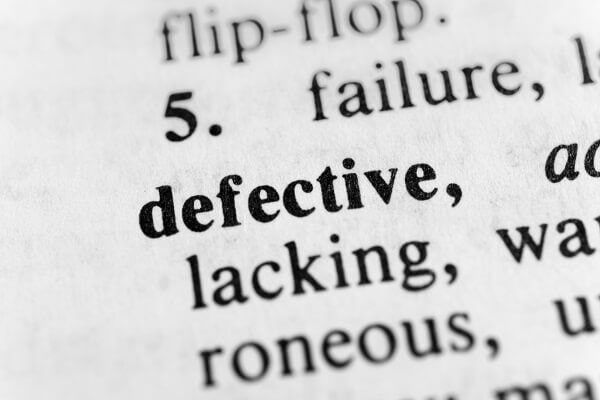Defective products come under the legal theories and laws surrounding product liability. These claims can be further complicated when the incident occurs in the workplace. In such circumstances, it can be hard for a victim to figure out what to do next.
Workers’ compensation insurance may not be your only recourse for a workplace injury.
A person injured at work may be able to successfully file a personal injury lawsuit when the injury involves a defective product, which would allow for a claim against the product manufacturer:
- The employer’s conduct was intentional or obviously likely to cause serious harm or death
- The injury involves a toxic or illegal substance
- The employer fails to carry workers comp insurance or didn’t because they were not technically required to
- The injury was caused by the negligence of a third-party that doesn’t work for the company
When a worker is injured by a machine or piece of equipment that is defective, failed to work properly, or is inherently dangerous, the manufacturer of the machine or equipment can be held responsible for the injury if it knew of the danger and/or didn’t properly warn the business or employees of the danger. In such a situation, the manufacturer would have to compensate the worker for things like medical bills, lost wages, and pain and suffering.
Workplace Injury Basics
In general, if you’re hurt on the job, you should notify your supervisor of the injury immediately. This is for the purpose of protecting you in a workers’ compensation claim. If everything with your claim goes as planned, you’ll then begin to receive benefits from your workers’ comp insurance company shortly after your claim is approved.
In some states, you cannot bring litigation against your employer for a workplace injury outside of the workers’ comp system. However, if it was a defective product that caused your injury, then you can begin a product liability claim in addition to your claim for workers’ comp benefits.
Here’s an example of when someone may be able to file a workers compensation and a defective product lawsuit
Bill works in a factory that produces office products. His job is to operate a punch press that punches holes in boxes. One day, when Bill puts his hand into the press to adjust a box, the foot pedal that he uses to stop the press sticks, and the press crushes three of his fingers. His fingers are no longer usable after the accident. Bill can collect workers’ compensation from his employer, and he also has a possible products liability case against the manufacturer of the defective press
Defective Products and Workplace Injuries
You could be able to recover additional compensation in a third-party defective product claim if the retailer, distributor, supplier, or manufacturer of the product:
- Never properly tested the product prior to placing it on the marketplace
- Created the defect either in the design or manufacturing process
- Failed to identify the defect in the product or the dangerous nature of certain components
- Did not install the product safely or effectively
- Did not adequately warn about the dangerous aspects of the product
A manufacturer or other liable party in a defective product claim could be held responsible for expenses like medical bills, lost wages, and pain and suffering incurred by the worker who was using the product as intended.
If you find yourself in this situation, document as many details about the accident as possible. Telling your employer about the accident right away is important, but you might also want to take notes of your own about what you remember about the product, the injuries you sustained, and your doctor’s recommendations for injury recovery. All of these case aspects can be important for product liability damages.
If you have been injured by an unsafe machine or other equipment in your workplace, consider talking to an attorney about your rights. You can also file a complaint with the Department of Labor’s Occupational Health and Safety Administration if there have been unsafe conditions (for more information, see Nolo’s article OSHA: Complying With Workplace Health and Safety Laws), in addition to filing a workers’ compensation claim. This is a particularly important step to take if your employer is still requiring you or other employees to use the equipment
Read our latest blog post on “How to Determine if You Have A Defective Product Case”
Sorting out the difference between your workers’ compensation claim and your defective product liability claim may require the assistance of a talented product liability attorney. As an injured victim, you need to stay focused on your medical treatment and recovery. Entrusting a lawyer to help with the evidence and paperwork filing for any personal injury claims could reduce your stress and give you peace of mind. For this reason, it’s in your best interests to set aside time to talk with one of our attorneys immediately.
Have your claim analyzed by one of our experienced personal injury attorneys today.




